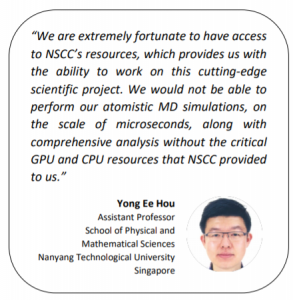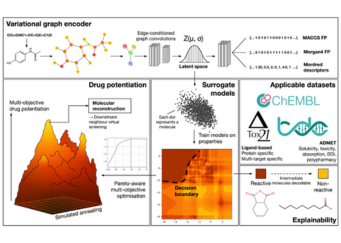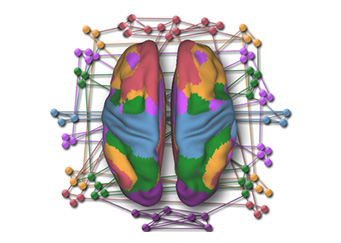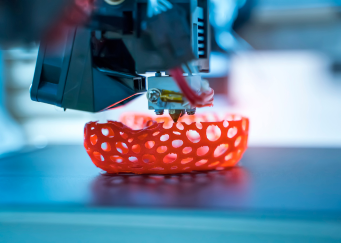Researchers from NTU are utilising NSCC’s supercomputing resources to understand the permeation of antibiotics in order to design new novel antibiotics.
Antibiotic resistance is a global concern for healthcare and for many economies. It is estimated that by 2050, 10 million people could die every year due to infectious diseases with antimicrobial resistance. Despite the advancements in medicine and microbiology, there are still a lot of questions about the mechanisms of antibiotics and why some antibiotics can permeate, or enter, bacteria cells while others cannot.

Permeation of antibiotics through the Gram-negative bacterial cell envelope is a complex process, where the outer membrane of cells serves as an effective barrier. It is not well understood why some drugs are able to penetrate the outer membrane whilst others cannot. A team of researchers at NTU’s School of Physical and Mathematical Sciences are tapping onto NSCC’s supercomputing resources to address the problem of the permeation of antibiotics through the outer membrane of Escherichia coli, using all-atom molecular dynamics (MD) simulations. The team is investigating the permeation mechanism of several clinically significant antibiotics to understand which antibiotics can penetrate the bacteria’s outer membrane better than others.
From a pharmaceutical perspective, this methodology using HPC provides a high-throughput screening of candidate compounds that could help accelerate the design of novel antibiotics. This approach may open up new avenues in the virtual screening of antibiotics in current drug design pipelines.
To find out more about the NSCC’s HPC resources and how you can tap on them, please contact [email protected].
NSCC NewsBytes June 2021
Other Case Studies
Advancing Drug Discovery Research using NSCC HPC resources
Researchers from Nanyang Technological University (NTU) are applying variational graph encoders as an effective generalist algorithm in computer-aided drug design (CADD)....
Gaining Deeper Insights into Mental Disorders through Brain Imaging and High-Performance Computing
Researchers from NUS are leveraging supercomputing to develop better strategies for prevention and treatment to mitigate the impact of mental illness. The human brain is a marvel...
Using Digital Twin Technology to Optimise the Industrial 3D Printing Process
Researchers from the Institute of High-Performance Computing (IHPC) are utilizing supercomputers to create a digital twin that furnishes users with comprehensive information...


